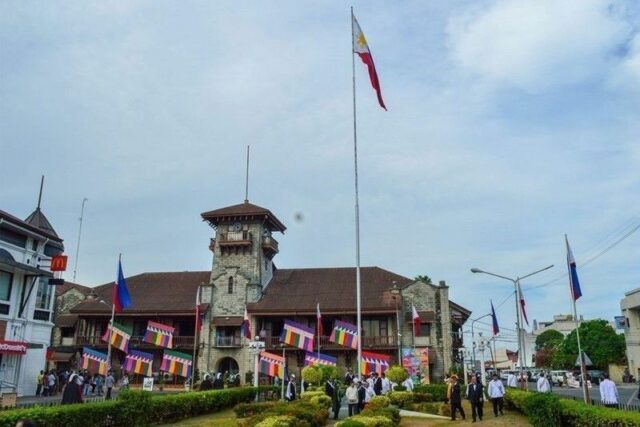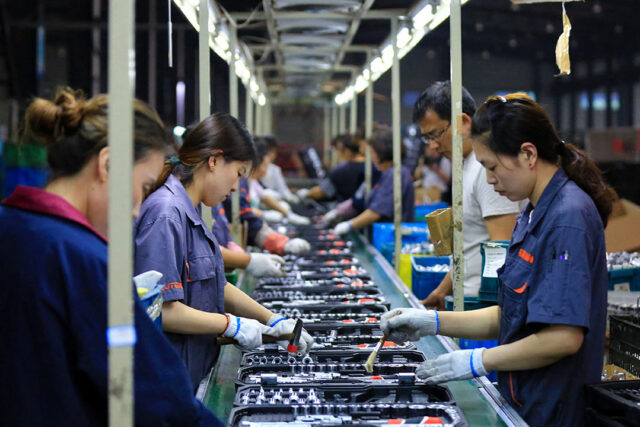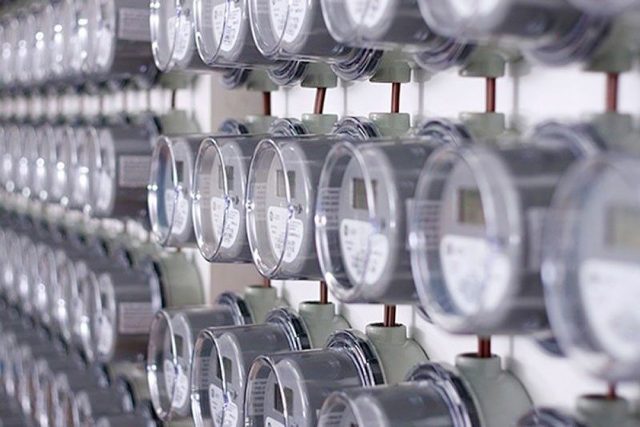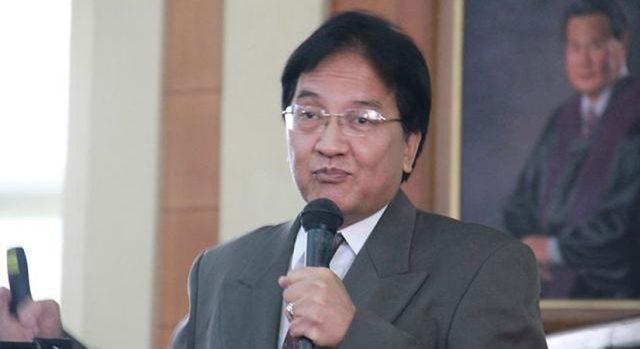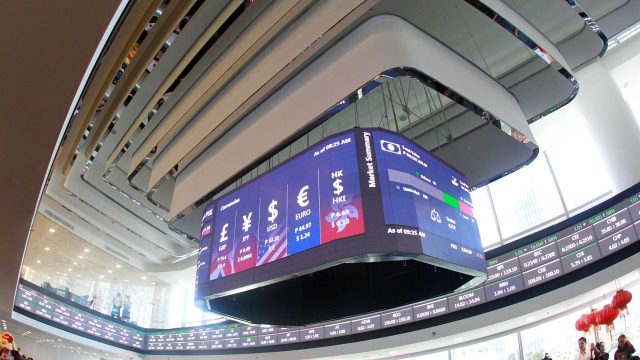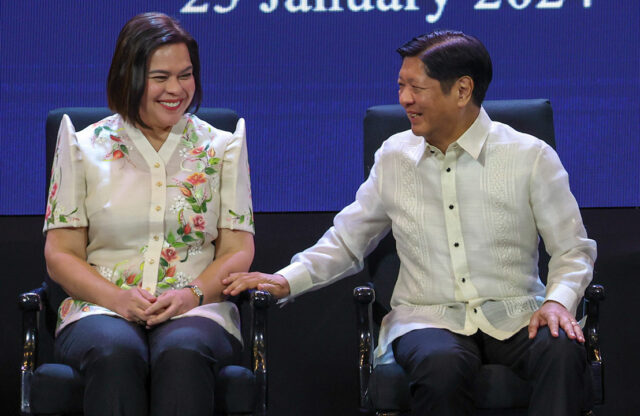By Kyle Aristophere T. Atienza, Reporter
THE growing conflict between the Philippines’ two highest officials does not bode well for its economy and could trigger an instability that may upset financial markets, an economist said.
Vice-President Sara Z. Duterte-Carpio’s rumblings amid a congressional probe of her questionable use of public funds and her kill remarks against the country’s key officials affirm global perceptions that the Philippines has a weak state, said Diwa C. Guinigundo, former central bank deputy governor and Philippine analyst for US-based GlobalSource Partner.
“[The implication] could be serious, affirmative of the outside world’s impression that we are a soft — I hope it’s not a banana — state,” he said in a Viber message.
“That does not exactly inspire investment, whether domestic or foreign.”
Mr. Marcos fired his first salvo on Monday after his former ally’s death threats to him, his wife, and House Speaker Martin G. Romualdez, vowing to never stand idly in the face of threats and to never allow the country to be dragged into gutter-level politics.
“With the President’s reaction, it looks like these recent differences between the two highest officials could precisely generate political and economic instability,” Mr. Guinigundo said.
“The financial markets could be further upset, the peso could further weaken and ultimately raise inflationary concerns,” he added. “The fiscal space is not growing, and debt concerns are legitimate.”
The National Bureau of Investigation (NBI) issued a subpoena to Ms. Duterte past noon on Tuesday, citing possible violations of the Cybercrime Prevention Act of 2012, and the Anti-Terrorism Act of 2020, which was a priority legislation during her father’s administration.
In a statement earlier in the day, the Vice-President did not deny making a threat to the President’s life but questioned supposed “insistence” that it is an active one.
“Common sense should be enough for us to understand and accept that a supposed conditional act of revenge does not constitute an active threat,” she said in a statement.
Justice Undersecretary Jesse H. Andres had said there’s no such thing as a conditional threat. “A threat is a threat.”
INVESTORS’ EQUATION
Mr. Guinigundo said Ms. Duterte “would always be part of the investors’ equation” because of her position, still-high popularity ratings, and her lead in early presidential surveys.
So far, the Vice-President has shown her disregard for the rule of law, which is an important consideration for foreign investors, and that she could be “too easy on public finances,” he added.
“It’s not pretty, some could always raise that she’s unfit to lead,” the economist said. “The VP needs to hold her horses especially when she attends congressional hearings where she tends to disrespect the members of the legislature.”
Following Mr. Marcos’ strongly worded statement, former President Rodrigo R. Duterte in a news briefing late Monday urged the military to take action, saying it holds “the solution” to a “fractured government.”
“No motive is more selfish than calling for a sitting president to be overthrown so that your daughter can take over,” Executive Lucas P. Bersamin said in response on Tuesday.
He urged the former president to respect the Constitution and “desist from being as irresponsible as he has become.”
Mr. Bersamin said the administration will not “shrink from its sworn duty to govern and manage the affairs of the Filipino nation according to the Constitution and the Rule of Law.”
He left a strong message: “The state will act resolutely to go against all unlawful attempts and challenges.”
Any economic policy must be grounded in a strong political foundation, said Leonardo A. Lanzona, who teaches economics at the Ateneo de Manila.
“Investors base their decisions on the notion that this country will finally put its house in order to achieve national outcomes and goals. This episode just totally dashed this notion,” he said via Facebook Messenger chat.
But George T. Barcelon, chairman of the Philippine Chamber of Commerce and Industry (PCCI), said foreign investors are more concerned on fundamental issues and the country’s macroeconomic conditions.
“Well, investors come, and they really look at the economic fundamentals,” he said in a phone call.
The political scene is not uncommon in other countries, he added, noting that investors are now having a predictable outlook for the US economy following a November presidential election that has put many countries in a wait-and-see mode.
Mr. Guinigundo said this is not the first time that the Philippine’ two highest officials were embroiled in an open confrontation, noting that former President Duterte and former Vice-President Maria Leonor G. Robredo also once fought on issues of principle and good governance.
“In the present case, I wouldn’t call this squabble because it is non-trivial,” Mr. Guinigundo said.
“The issue focuses on corruption levelled against the Vice-President’s handling of her budget and her violent response claiming she was subject of planned assassination,” he added.
Mr. Marcos, who flew to the United Arab Emirates late on Monday for a one-day working visit, has been touting the Philippines as an investment destination in both local and foreign events attended by business players.
LITTLE DIRECT IMPACTS
Philip Arnold P. Tuaño, dean of the Ateneo School of Government, said while the political spats would have “little direct impacts” on foreign direct investment given that investment decisions are made not in the short-term, “repeated incidents of public quarrels between the two top officials in the country” could trigger major dismays among local and foreign investors.
“If this squabbling heightens to actual political violence in the upcoming midterm elections, this would certainly turn off efforts to bring in more capital into the country,” he added in a Messenger chat.
The political infighting worsens ahead of the midterm polls, where Filipinos will elect over 300 district representatives and 12 people for the 24-member Senate.
On whether or not Philippine politicians are mature enough to insulate economic issues from politics, political economy researcher Hansley A. Juliano said: “There’s a generational shift with politicians in the House, and a number of them are definitely inclined to facilitate foreign investment” even in the face of opposition from the civil society.
“What usually stops them is if it directly hurts their local economies and their capacity to distribute patronage,” he added in a Messenger chat.
“The calculus is usually that, and is tied to how much their political dynasty of origin wants a stranglehold on local economics and politics,” he added.
The 149-member League of Cities of the Philippines has already expressed support for Mr. Marcos, saying Ms. Duterte’s “recent outburst” were both “unbecoming of her office and reckless.”
De La Salle University political science professor Anthony Lawrence A. Borja said it’s not a matter of insulating economic policymaking from politics because “such is an impossibility in a system defined more as a strong society tied to weak state institutions.”
“Rather, it is an issue of placing economic growth and development as the center of gravity for politics itself through good governance,” he said via Messenger.
Political instabilities triggered by corruption scandals are not new for the Philippines, which saw the ouster of a sitting president in 2001 amid graft charges, as well as its Southeast Asian neighbors.
Since 2016, Vietnam has been waging an anti-corruption campaign named “blazing furnace” (dot lo) that has seen the removal of about 200,000 party members.
“Vietnam is a one-party state with working intra-party regulations and corrective procedures,” he said.
While the Philippines’ political system is different from that of Vietnam, Southeast Asia’s modest democracy can draw lessons from the one-party state’s “capacity to project a sense of stability by having functioning intra-government regulations that can withstand elite power struggles and keep corruption to a tolerable level for investors and domestic economic actors,” Mr. Borja said.
Mr. Juliano noted that Vietnam’s centrally planned economy does provide a level of regulatory oversight “that our fundamental acceptance of neoliberalism doesn’t do, which keeps kneecapping Philippine performance.”
Mr. Marcos has been recognizing liberal economic reforms passed under his predecessor in key public events, and has pushed for measures in a bid to attract more foreign investment.
Mr. Juliano said that after all, the Philippines’ weakness in attracting manufacturing locators is due in large part to fundamental issues — high operating costs, red tape, and corruption.
Mr. Guinigundo, the former central bank deputy governor, said the Congress should do its part to prove that the Philippine political system remains stable — “As soon as they finish all the testimonies, they should prepare the committee report and based on their conclusion, submit actional recommendations like prosecuting those guilty of malfeasance in public office.”
“That would prevent a protracted public spectacle of how unstable Philippine politics is, how the law is being violated even in the higher level of public service,” he added.

